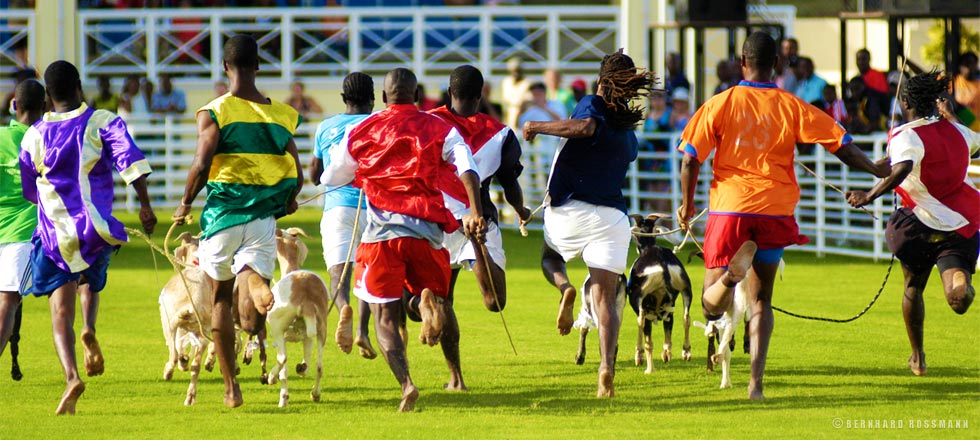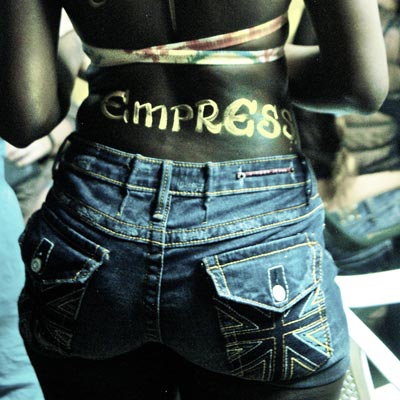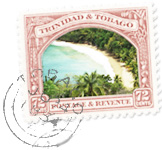Buccoo Goat Race
Buccoo Goat Race
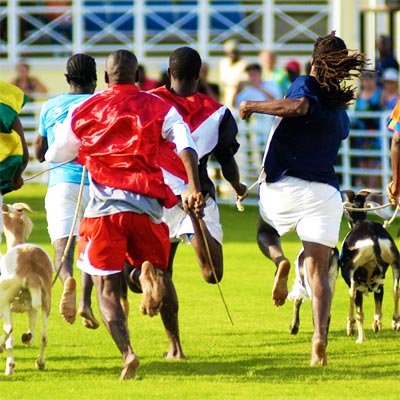
Contact:
- Mr. Winston Pereira
Phone:
- +1 868 772 5609
Email:
- This email address is being protected from spambots. You need JavaScript enabled to view it.
Main Event:
- Easter Tuesday
The Buccoo Goat Race started in 1925 by the late Samuel Callender, a Barbadian native, this was in fact the poor man’s equivalent to the horse races, which was reserved for the local gentry at the time. Horse racing occupied Easter Monday on the calendar and the following Tuesday was declared ‘Easter Tuesday’ in Tobago and dedicated to the racing of goats for the entertainment of the "lower classes".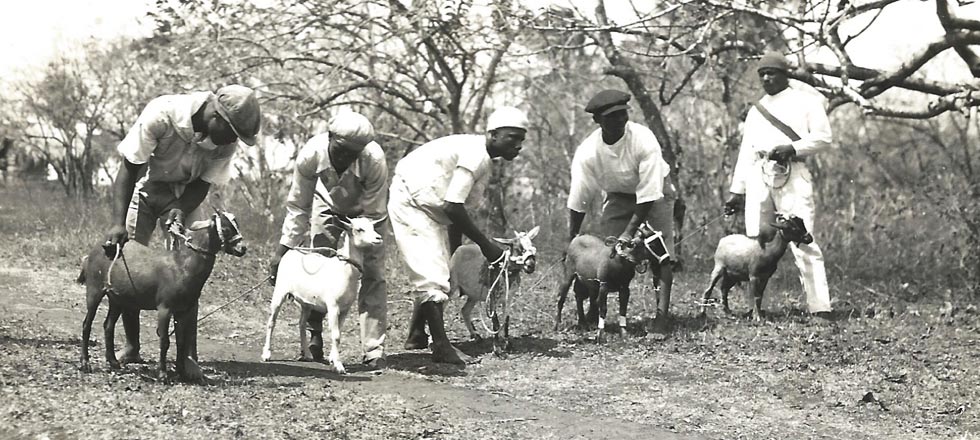
The races were held on one of the village streets, now called Chance Street, but were relocated when the road was paved and the area developed. The next venue known as the ‘Battery’ proved to be an unpopular location due to the proximity of overhanging cliffs at the finish line. The event then changed locations for the final time 21 years ago to its current venue neighbouring the Buccoo Beach facility. Since its inception, the event has been planned and organised by a sub-committee of the Buccoo Village Council now referred to as the Buccoo Goat Race Festival Committee. Although Easter Tuesday is ‘officially’ Goat Races Day in Tobago, the activity now occurs more regularly on the entertainment calendar at events such as the Tobago Heritage Festival. The sport has been adopted by the nearby village of Mt. Pleasant for the past few years.
Strength and speed are required of a good racing goat and this is achieved by the hard work and dedication of the owners, trainers and jockeys. The animals are trained for at least two months prior to racing and during this period they learn to walk at increasing speeds until they’re running in front of the trainer with a rope round their neck as on race day. A swimming routine to build muscles is also a critical part of the training as is diet. It is thought that nanny goats are better runners. However, billy goats are the preferred choice since they live longer. A racing goat can live as long as 13 years given the correct care and attention.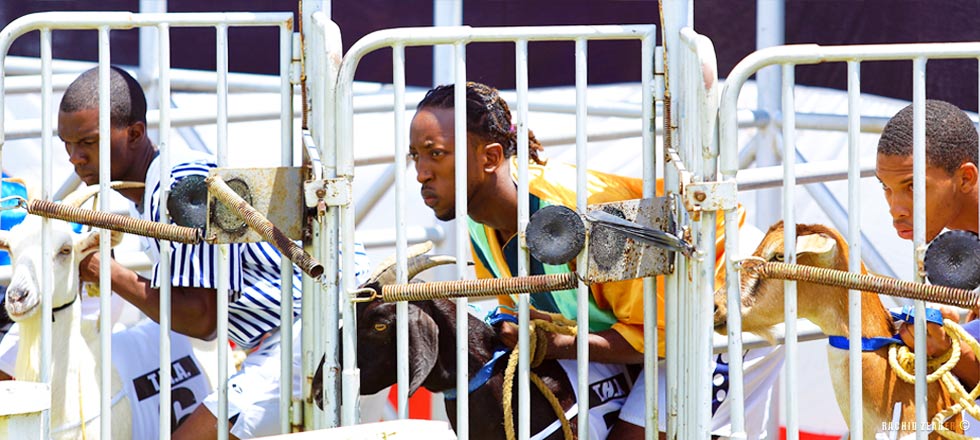
The jockeys are a critical link between winners and losers as their speed must be akin to that of their charges. Often a goat will outrun the jockey and become disqualified. Therefore the training, diet and other physical activities are also regulated during the time leading up to the races for this test of speed and endurance. Like horse racing, classification is important to the stakeholders. The Buccoo Goat Race Festival Committee uses these classifications: C2 – First time runners, C1 – Runners from the previous year, B – Running for the past two years, A – Most experienced runners.
The event starts with a somewhat noisy street parade where booths offering crafts, T-shirts, food and drink line the route. Many residents also open their homes to the visitors and provide delicious local cuisine for the occasion.
The Goat Race Festival has now become a major event in Tobago’s tourism calendar. The Tobago House of Assembly’s Department of Tourism have sponsored the races over the years. The Goat Race Festival has evolved into a truly family affair where generations meet through tradition and visitors caught up in the festive atmosphere become honorary Tobagonians for a day.